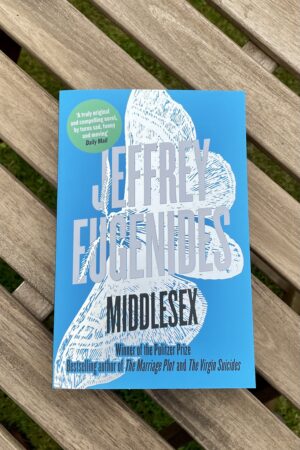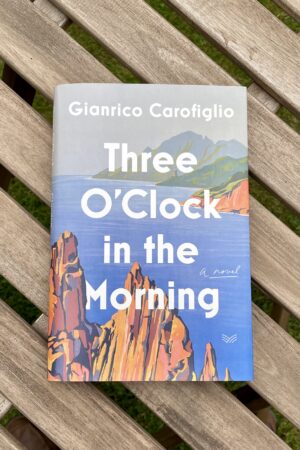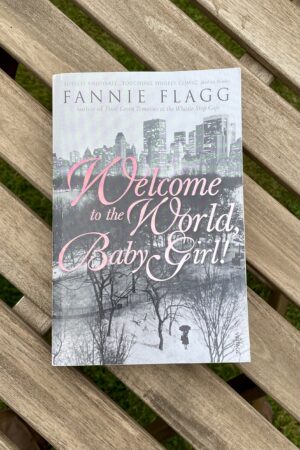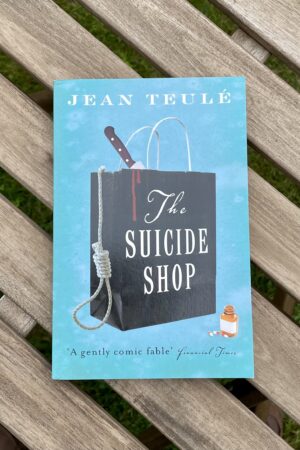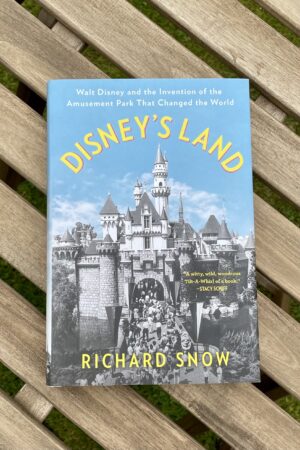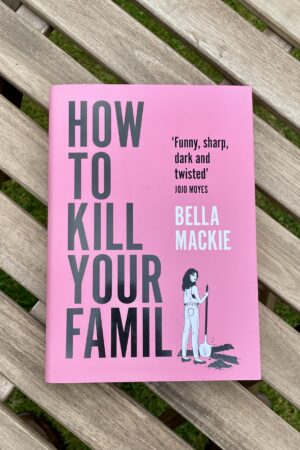What I’ve been reading this month
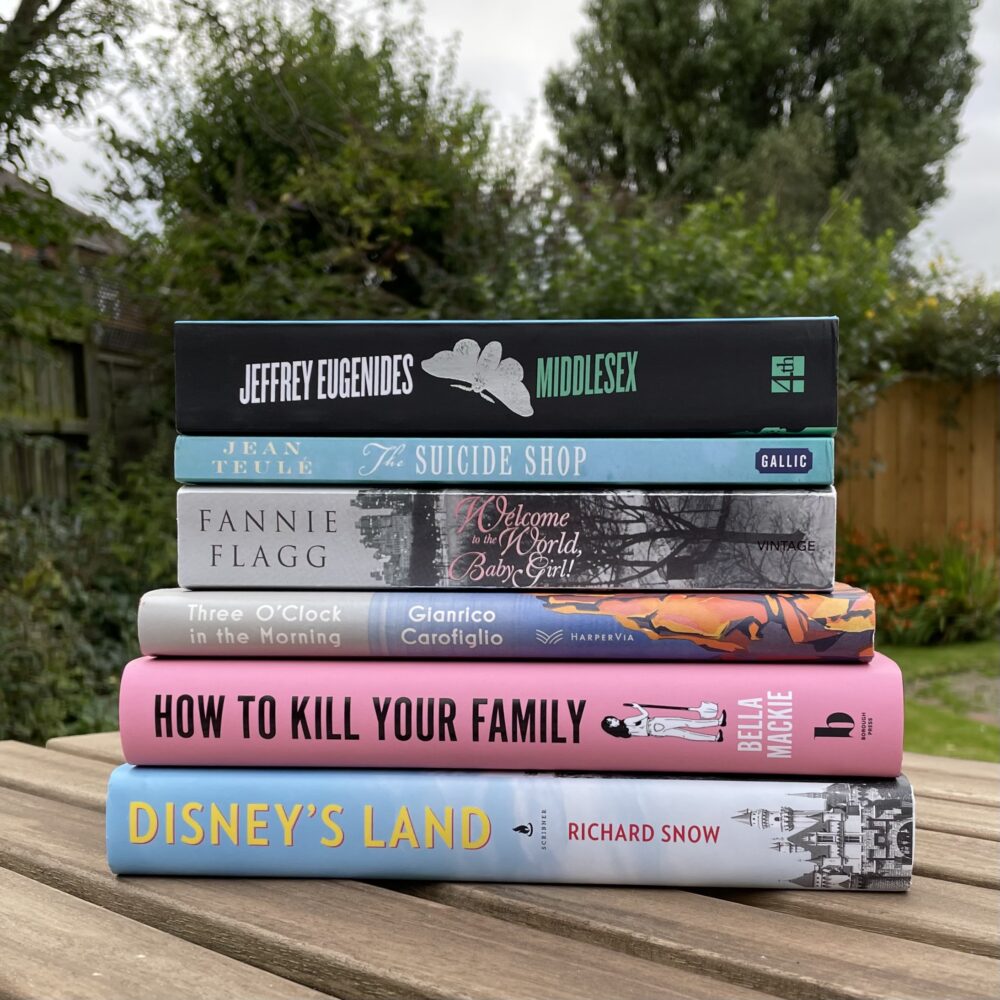
I’ve six books to tell you about this month, almost all of which were really good.
Middlesex by Jeffrey Eugenides
This 2002 novel by Jeffrey Eugenides won the Pulitzer prize—and in my view, entirely deserved it. I thought this was brilliant.
The plot is focused on Calliope Stephanides, an intersex man who—despite a XY chromosomal pattern—has a genetic disorder which causes him to be born with feminine genitalia, and to be raised as a girl. The condition reveals itself as Calliope reaches puberty.
But this isn’t just a novel about an intersex man, or even just about gender identity: most of the previous paragraph makes up only the final third of the novel. The rest explores Calliope’s family history, commenting on the immigrant experience for his grandparents moving from Greece to Detroit, and telling a compelling set of stories of consanguinity. The narrator is also witty, and this book made me laugh.
I thought this was brilliant, both in terms of its telling of the broad canvas story of immigration and social change, and of the specific plot and the gender issues caught up in it. It is a real page-turner of a story, as well as having a lot to say.
❧ I alternated between an ebook from Scribd’s library and a hardback from The London Library. I then ended up buying the pictured paperback because I enjoyed this so much.
Three O’Clock in the Morning by Gianrico Carofiglio
This is the 2021 translation by Howard Curtis of the 2017 best-selling Italian novel by Gianrico Carofiglio. In terms of describing the plot, can do no better than quoting Curtis’s note at the back of the book:
This is basically a novel about communication, a story of a father and son who, through extraordinary circumstances, are forced to spend time together and, in doing so, to discover truths about each other they might not otherwise have learned. They do this mainly by talking, really talking to each other, for the first time in their lives. Over the course of two sleepless days and nights in Marseilles, the characters discover the power of words to reveal the truth of the human soul.
This was right up my street, and I thoroughly enjoyed it. It’s the first Carofiglio novel I have read, and I very much enjoyed the precise style of writing, particularly for a book which is about such imprecise and shifting qualities in human relationships.
The son in the book is, for the most part, in his late teens, so this is also something of a coming-of-age novel. The ‘extraordinary circumstances’ which force father and son together are related to a diagnosis of a particular kind of childhood epilepsy, so there’s an interesting parallel between ‘growing up’ in an emotional sense and growing out of childhood conditions.
There was loads to think about in such a short book, and I think it would reward re-reading too.
❧ I bought a hardback and read most of this from there, but did dip into an ebook version from Scribd’s library now and again.
Welcome to the World, Baby Girl! by Fannie Flagg
Fannie Flagg’s 1998 novel about the life and complicated past of an up-and-coming female newsreader in the 1970s is not the sort of thing I’d usually pick up for myself, but it was recommended ages ago by my friend Julie.
While it felt a bit melodramatic, there were some interesting underlying social history themes (it’s hard to be more specific without revealing too much of the plot!) and the writing style and tone were light and fun: perfect for a holiday read. There’s even a dash of romance.
This was a great recommendation: something is never have come across myself, and which I really enjoyed.
❧ I bought and read this in paperback.
The Suicide Shop by Jean Teulé
Translated by Sue Dyson in 2008, this is French author Jean Teulé’s popular 2007 fable about a cartoonish family (not unlike the Addams family) who run a shop selling suicide methods in a future where climate change has ravaged the world.
In 169 pages, Teulé combines black humour with a moral message which feels highly relevant to our times. It made me laugh out loud a couple of times, and I enjoyed it, but in retrospect I’m not sure if it may have been just a little bit too twee despite the darkness… but perhaps that’s how fables are supposed to make us feel.
❧ I read most of this in ebook form from Scribd’s library, but switched to a paperback sometimes which I bought a while ago.
Disney’s Land by Richard Snow
I’ve never been to the original Disneyland in California, and haven’t really got any strong interest in it, though I have been to the Florida and Paris versions at various points in my life. I passed Anaheim on a train a few years ago, and wasn’t drawn to take the opportunity to pop out for a gander. I couldn’t reliably tell the ‘Matterhorn’ from ‘Big Thunder Mountain’. Yet, I enjoyed this 2019 history of Walt Disney’s personal involvement in the design and building of Disneyland.
This book reminded me in a sense of The Caped Crusade: Batman and the Rise of Nerd Culture by Glen Weldon, another book I unexpectedly enjoyed, in that interest in the primary subject matter doesn’t seem to be a prerequisite for gaining insight from the text and getting caught up in the ‘plot’. I suppose, to some degree, that is the mark of a successful non-fiction book. This is as much a sociocultural history as it is a book about a theme park, and it was filled with anecdote and wit, and Snow’s enthusiasm for his topic shines through.
This is a book I’d never have picked up except on recommendation, and yet I enjoyed it from start to finish. I’m not sure I’ll remember many of the details twelve months from now, but it was very diverting while I read it.
❧ I bought a hardback and alternated between it and an ebook version from Scribd’s library.
How to Kill Your Family by Bella Mackie
I picked this up because my friend Rachael recommended it. It is a recently published first novel by Bella Mackie, in which the protagonist, Grace, decides to murder all of the living members of her estranged family in order to secure an inheritance.
I enjoyed this to a point: Grace was a fun character sketched with dark humour rooted in contemporary culture. But to me, she was a bit too fun, and not really dark and calculating enough to convince me that she was capable of multiple brutal murders. It felt like the character lacked an edge.
This was problematic, as there isn’t much carrying this book other than Grace’s character. The plot is essentially little more than a short story collection of vaguely related murders, with a disappointing cop out of an ending which does little to round off the story or round out Grace’s character.
So, in the end, this was a fun read… but really not much more than ‘okay’ overall.
❧ I bought a hardback and read most of this from there, but did dip into an ebook version from Scribd’s library now and again.
This post was filed under: What I've Been Reading, Bella Mackie, Fannie Flagg, Gianrico Carofiglio, Howard Curtis, Jean Teulé, Jeffrey Eugenides, Richard Snow, Sue Dyson.
